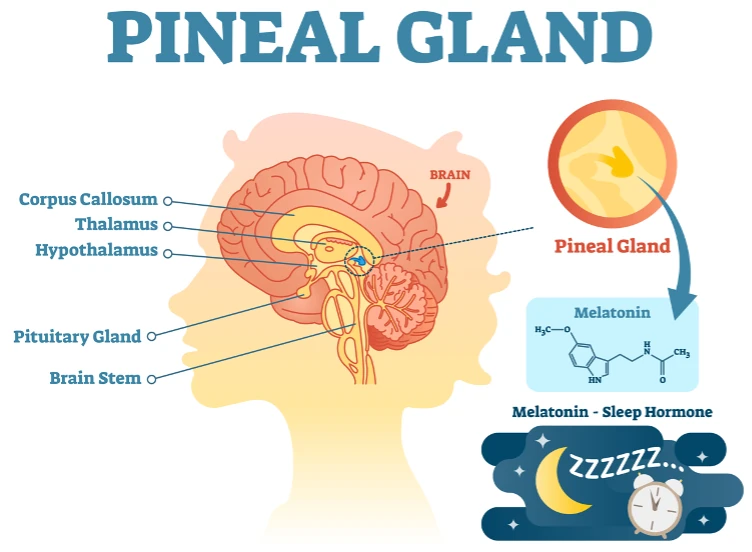Sleep regression is a term that often causes concern among new parents, but it’s important to understand that it’s a normal part of infant development. Sleep regression refers to a period when a baby’s sleep patterns change, often resulting in more frequent night waking’s and shorter naps. These changes are typically associated with developmental milestones and cognitive growth.
While the term “regression” may sound negative, it’s crucial to recognise that these sleep disruptions are actually signs of progress. Your baby is developing new skills and becoming more aware of their surroundings, which can temporarily impact their sleep patterns. This article will discuss the 4-month sleep regression, focusing on its causes, duration, and practical strategies to help parents and babies manage this challenge.
What happens during the 4-month sleep regression?
Around the 4-month mark, babies experience significant changes in their sleep patterns and cycles. This period marks a transition from newborn sleep patterns to more adult-like sleep cycles. Prior to this stage, infants typically cycled between two sleep states: quiet (deep) sleep and active (light) sleep. However, at around four months, babies begin to develop a more complex sleep cycle that includes multiple stages, similar to adult sleep patterns.
This newfound sleep complexity can lead to more frequent night wakings. Babies may now wake up at the end of each sleep cycle, whereas before, they might have seamlessly transitioned from one cycle to the next. This change can result in shorter naps and more disrupted nighttime sleep.
Alongside these sleep changes, babies at this age are experiencing rapid physical and cognitive development. They’re becoming more aware of their surroundings, developing new motor skills, and often showing increased interest in the world around them. This cognitive leap can contribute to sleep disruptions as babies process new information and practice new skills.
Sleep patterns often shift dramatically during the 4-month regression. Parents may observe that the baby is having more frequent night wakings, difficulty falling asleep, shorter naps, or even resisting sleep entirely. While these changes can be challenging, they’re a normal indication of your baby’s developing brain and maturing sleep cycles. With patience and consistent routines, most infants will eventually adapt to their new sleep patterns.
Common concerns and misconceptions
The 4-month sleep regression often catches parents off guard, leading to various concerns and misconceptions. One common worry is that these sleep disruptions will become permanent, leading to long-term sleep problems. However, it’s important to understand that sleep regression is a phase, not a permanent change in your baby’s sleep habits.
Another misconception is that external factors, such as changes in routine or environment, are solely responsible for sleep regression. While these factors can influence sleep, the primary driver of the 4-month sleep regression is internal developmental changes. Parents may also mistakenly believe that sleep regression indicates something is wrong with their baby or their parenting approach.
It’s natural to feel overwhelmed during this period, especially if you’ve just settled into a comfortable routine. However, remember that your baby’s changing sleep patterns are a sign of healthy development. This phase does not reflect on your parenting skills or indicate any problems with your child’s health or well-being.
How long does it last?
The duration of sleep regression can vary significantly from one baby to another. Typically, the 4-month sleep regression lasts anywhere from 2 to 6 weeks. Some babies may experience shorter periods of disruption, while others might take longer to adjust to their new sleep patterns.
It’s important to note that while the acute phase of sleep regression may last a few weeks, the changes in sleep patterns that occur during this time are often permanent. Your baby is transitioning to a more mature sleep cycle, which is a positive developmental step. The good news is that most babies will eventually adapt to these new patterns and start sleeping for longer stretches again.
Tips for coping with sleep regression
Dealing with the 4-month sleep regression can be challenging, but several strategies can help both you and your baby cope during this period.
Maintain a consistent bedtime routine: A predictable sequence of events leading up to bedtime can signal your baby that it’s time to sleep. This might include activities like a warm bath, gentle massage, reading a story, or singing a lullaby.
Create a sleep-friendly environment: Ensure your baby’s sleep space is conducive to rest. This typically means a cool, dark room with minimal distractions. Consider using blackout curtains or a white noise machine to create an optimal sleep environment.
Feeding before bedtime: Feeding your baby before bedtime is an effective strategy to manage the 4-month sleep regression. This approach promotes satiety, potentially reducing night wakings caused by hunger. It also provides comfort through the soothing act of feeding and helps to establish a routine that signals sleep time.
Respond consistently to night wakings: When your baby wakes at night, try to respond consistently. This might mean brief comfort and reassurance without fully waking the baby.
Adjust nap schedules as needed: As your baby’s sleep patterns change, you may need to adjust their daytime nap schedule. Pay attention to your baby’s sleep cues and be flexible in adapting to their changing needs.
Sleep training methods: If appropriate for your family, you might explore gentle sleep training methods to help your baby learn to self-soothe and sleep for longer stretches. However, it’s important to choose a method that aligns with your parenting philosophy and your baby’s temperament.
Take care of yourself: Remember that a well-rested parent is better equipped to handle sleep problems for a baby. Try to prioritise your rest by taking turns with a partner for night duties or napping when your baby naps.
Be patient and flexible: Remember that this is a phase, and your baby is learning and developing rapidly. Flexibility and patience are key in this challenging time.
When to seek professional help?
While sleep regression is a normal phase of development, professional guidance may be beneficial. Consider consulting a paediatrician or sleep specialist if:
- Sleep disruptions persist well beyond 6-8 weeks
- Your baby seems excessively irritable or lethargic during the day
- You notice a significant change in your baby’s feeding patterns
- You’re concerned about your baby’s growth or development
- Sleep issues are causing significant stress or impacting your family’s well-being
A professional can help rule out any underlying health issues and provide personalised strategies to improve your baby’s sleep. They can also offer support and reassurance during this challenging phase.
Are you struggling with sleep regression?
The 4-month sleep regression is a significant milestone in your baby’s development. While it can be a challenging time for parents, it’s important to remember that these changes signify your baby’s growing awareness and cognitive development. This phase is temporary, and with patience and consistent strategies, most families successfully get through this period.
Whether it’s from family, friends, or professionals, having a support system can make a significant difference during this transitional period. Stay patient, remain consistent, and remember that this phase will pass. Trust your instincts as a parent, and don’t hesitate to seek support when needed.
If your baby’s sleeping difficulties are starting to have an impact on your sleep, seeking professional assistance early can prevent your sleep from deteriorating further. As a leading sleep specialist, we have had the privilege of assisting numerous parents manage this challenging period. Please feel free to contact us for support. We are dedicated to providing the guidance you need and can also refer you to other experts if necessary.










